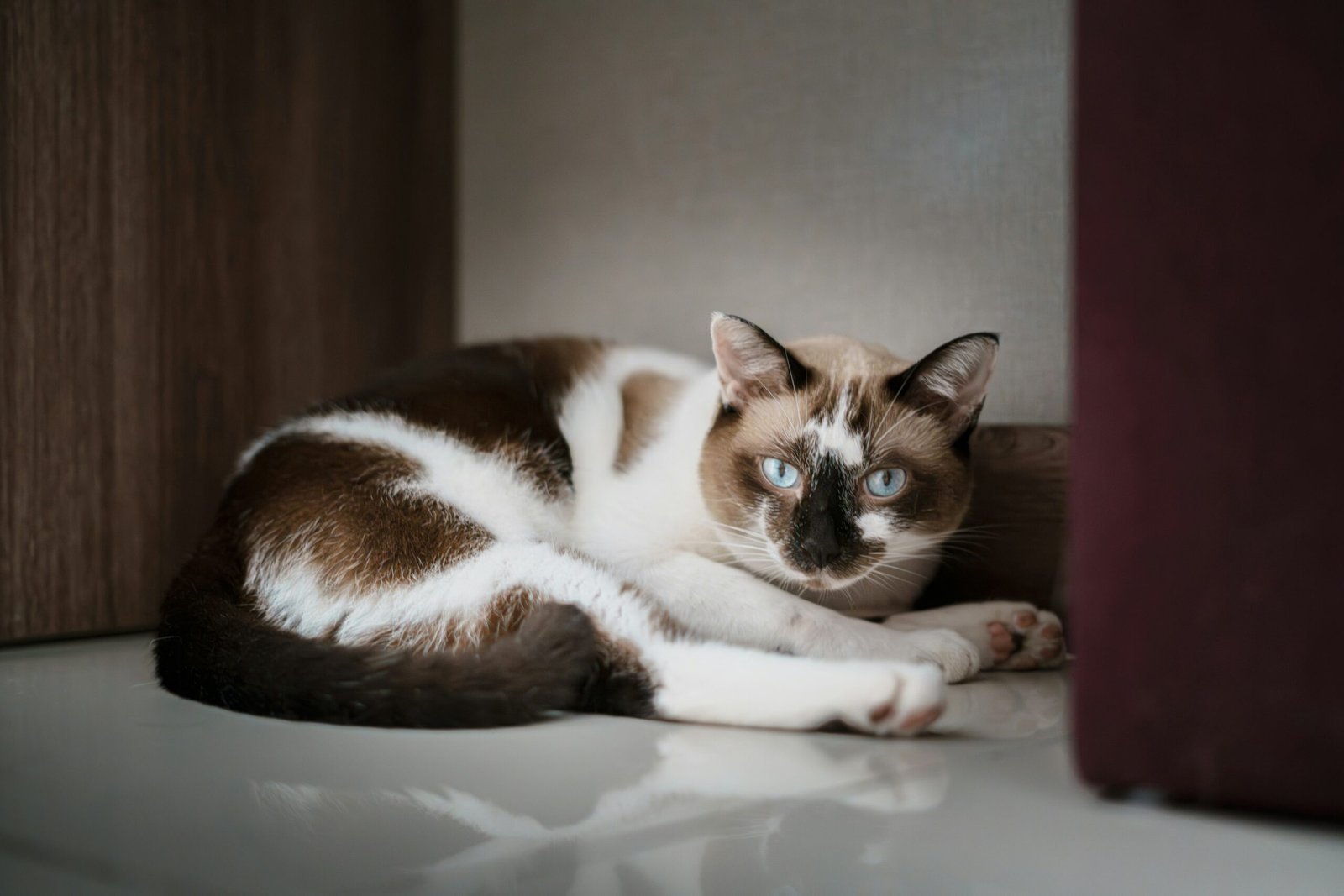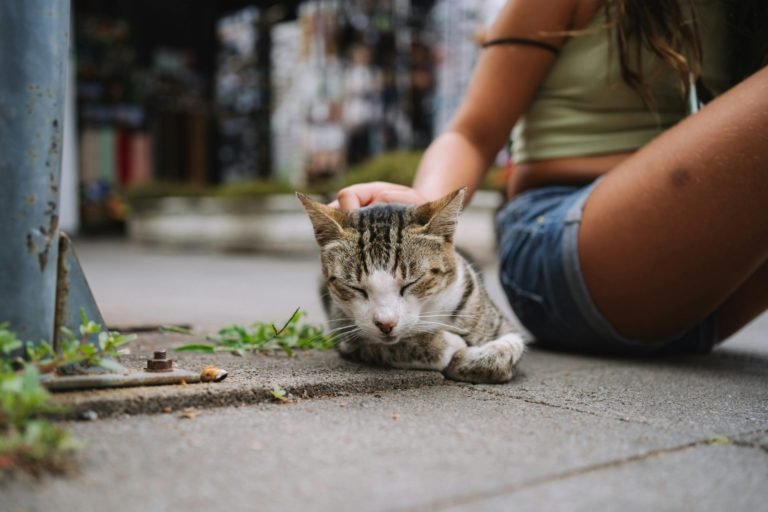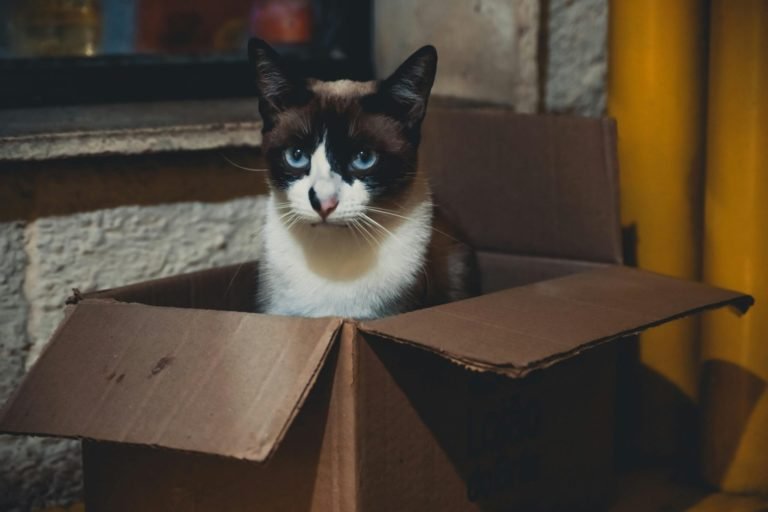
Are you seeking holistic alternatives to traditional veterinary care for your feline friend? Many cat owners are exploring the realm of natural remedies to address common health concerns. While professional veterinary guidance remains essential, incorporating natural approaches can complement your cat’s overall well-being. From digestive upsets to skin irritations, there’s a growing interest in harnessing the power of nature to support feline health.

By understanding your cat’s body and implementing suitable natural remedies, you can contribute to their overall wellness. It’s important to remember that every cat is unique, and what works for one may not be suitable for another. Always consult your veterinarian before making significant changes to your cat’s diet or routine.
This guide delves into a variety of natural remedies for common cat ailments. We’ll explore effective approaches to digestive issues, skin problems, urinary tract health, and stress management. Let’s embark on a journey to discover how you can leverage the benefits of nature to enhance your cat’s quality of life.
Hairball Relief: Natural Remedies for Your Cat
Hairballs are a common nuisance for cat owners, especially those with long-haired companions. These pesky clumps of fur can cause discomfort and even lead to more serious digestive issues. While occasional hairballs are normal, frequent episodes may require additional attention. Let’s explore some natural remedies to help your feline friend find relief.
Understanding the Hairball Menace
Hairballs occur when cats groom themselves and inadvertently swallow excess fur. This fur accumulates in the stomach, forming a tight ball that can be difficult to pass. Symptoms of hairballs include vomiting, decreased appetite, and excessive licking.
Natural Solutions for Hairball Relief
- Regular Grooming: Brushing your cat regularly is essential for preventing hairballs. This helps to remove loose fur before your cat has a chance to ingest it.
- Dietary Fibre: Incorporating fibre into your cat’s diet can help move hair through the digestive system more efficiently. Consider adding a small amount of canned pumpkin or pumpkin powder to their food. These fibre-rich options can provide gentle relief.
- Hydration: Dehydration can contribute to hairball formation. Encourage your cat to drink plenty of water by providing fresh water in multiple locations around your home.
- Hairball Formulas: There are commercially available hairball formulas that contain natural ingredients like malt or petroleum jelly. These products can help lubricate the digestive tract and make it easier for hairballs to pass.
- Cat Grass: Growing cat grass indoors can provide a healthy outlet for your cat’s urge to chew. This can help reduce the amount of fur they ingest.
Remember, while natural remedies can be effective for occasional hairballs, persistent issues may require veterinary attention. If your cat is experiencing severe symptoms or frequent hairballs, consult your vet to rule out underlying health problems.

Constipation in Cats: Home Remedies and Prevention
Constipation in cats can be a painful and uncomfortable experience. While occasional constipation is not uncommon, persistent issues may require veterinary attention. Let’s explore some natural approaches to alleviate constipation in your feline friend.
Recognizing the Signs of Constipation
It’s important to be able to recognize the signs of constipation in your cat. Common symptoms include straining to defecate, small or hard stools, decreased appetite, and lethargy. If you notice these symptoms, it’s essential to monitor your cat closely and consult your vet if the problem persists.
Natural Relief for Constipation
- Increase Water Intake: Dehydration can contribute to constipation. Ensure your cat has access to fresh, clean water at all times. You can also try adding a splash of tuna water or chicken broth to their water bowl to entice them to drink.
- Dietary Adjustments: A diet rich in fiber can help soften stools and promote regular bowel movements. Consider adding a small amount of canned pumpkin or pumpkin powder to your cat’s food. You can also consult your vet about switching to fiber-rich cat food.
- Exercise: Regular exercise can help stimulate bowel movements. Encourage your cat to play interactive games or use a scratching post to get them moving.
- Gentle Massage: Gently massaging your cat’s abdomen can help stimulate their digestive system. Use circular motions and avoid applying too much pressure.
Prevention Tips
- Maintain a Healthy Diet: A balanced diet with appropriate levels of fibre is crucial for preventing constipation.
- Regular Exercise: Encourage your cat to engage in physical activity to promote healthy digestion.
- Monitor Water Intake: Ensure your cat is drinking enough water to prevent dehydration.
Remember, while these natural remedies can be helpful for mild cases of constipation, severe or persistent symptoms require veterinary evaluation. Your vet can rule out underlying medical conditions and recommend appropriate treatment.
Diarrhoea in Cats: Natural Approaches to Recovery
Diarrhoea can be a distressing symptom for both cats and their owners. While it’s often a temporary issue, persistent diarrhoea can lead to dehydration and other health problems. Let’s explore some natural remedies that can help manage this uncomfortable condition.

When to Worry About Diarrhoea
It’s essential to distinguish between mild, occasional diarrhoea and more severe cases. If your cat exhibits signs of dehydration, such as lethargy, decreased appetite, or sunken eyes, consult your veterinarian immediately. Additionally, if the diarrhoea persists for more than 24 hours, it’s crucial to seek professional advice.
Home Care for Mild Diarrhoea
- Bland Diet: A bland diet can help soothe the digestive system. A mixture of boiled chicken or white rice can be offered in small amounts. Gradually reintroduce your cat’s regular food once the diarrhoea improves.
- Hydration: Dehydration is a common concern with diarrhoea. Encourage your cat to drink plenty of water. You can also offer oral rehydration solutions formulated for pets to replenish electrolytes.
- Probiotics: Probiotics can help restore balance to the gut microbiome. Consult your vet about appropriate probiotic supplements for your cat.
- Fibre: Adding a small amount of cooked pumpkin or canned pumpkin to your cat’s food can provide additional fibre, which can help solidify stools.
Remember, these home remedies are suitable for mild cases of diarrhoea. If your cat’s condition worsens or doesn’t improve, seek veterinary care promptly.
Managing Cat Vomiting: Natural Care Tips
Vomiting can be a distressing symptom for both cats and their owners. While occasional vomiting is not uncommon, persistent or frequent vomiting requires veterinary attention. Let’s explore some natural approaches to manage occasional vomiting in your feline friend.
When to Worry About Vomiting
It’s crucial to differentiate between occasional vomiting and more serious conditions. If your cat is vomiting frequently, has difficulty keeping down water, or shows signs of lethargy or weakness, seek veterinary care immediately.
Home Care for Occasional Vomiting
- Short-Term Fasting: If your cat has vomited once or twice, allowing their stomach to rest for a few hours can sometimes help. Ensure they have access to fresh water during this time.
- Bland Diet: Once the vomiting has subsided, offer a bland diet consisting of boiled chicken and rice. Gradually reintroduce their regular food over a few days.
- Small, Frequent Meals: Feeding smaller meals more frequently can help reduce the likelihood of vomiting.
- Elevation: Raising your cat’s food and water bowls can sometimes help prevent acid reflux.
Preventing Future Episodes
- Dietary Changes: If your cat frequently vomits, consider switching to a gentle or sensitive stomach cat food.
- Hairball Management: Regular grooming and hairball prevention measures can help reduce the incidence of hairball-related vomiting.
- Stress Reduction: Create a calm environment for your cat to minimise stress-related vomiting.
Remember, these tips are for occasional vomiting. Persistent or severe vomiting requires veterinary evaluation to rule out underlying medical conditions.
Skin and Coat Care with Natural Remedies
A cat’s skin and coat are important indicators of overall health. Issues such as dryness, allergies, and parasites can cause discomfort and distress. Let’s explore some natural approaches to support your cat’s skin and coat health.

Dry Skin in Cats: Soothing Natural Treatments
Dry skin can be itchy and uncomfortable for cats. Common symptoms include dandruff, flaky skin, and excessive grooming. Here are some natural remedies to help soothe your cat’s dry skin:
- Omega-3 Fatty Acids: These essential fatty acids can help nourish your cat’s skin from within. Consider adding a fish oil supplement to their diet after consulting your vet.
- Regular Grooming: Gentle brushing can help remove dead skin and distribute natural oils, promoting healthy skin and coat.
- Humidification: Increasing humidity in your home can help hydrate your cat’s skin, especially during dry winter months.
- Oatmeal Baths: Adding colloidal oatmeal to your cat’s bathwater can help soothe itchy skin.
Cat Allergies: Natural Relief and Management
Allergies can cause discomfort and itchiness for cats. Common allergens include pollen, dust mites, and certain foods. While natural remedies may not completely eliminate allergies, they can help manage symptoms:
- Identify Allergens: Try to pinpoint the specific allergen causing your cat’s discomfort. This can help you take steps to minimise exposure.
- Air Purifiers: Using an air purifier with a HEPA filter can help reduce airborne allergens in your home.
- Dietary Changes: Consult your vet about trying a hypoallergenic or limited ingredient diet to identify potential food allergies.
- Supplements: Some supplements, such as omega-3 fatty acids or probiotics, may help support skin health and reduce allergy symptoms.
Flea and Tick Prevention: Natural Alternatives
Fleas and ticks can be a nuisance for cats and can lead to skin irritation and other health problems. While natural repellents are available, it’s important to consult your vet for the best prevention strategy for your cat. Some natural options include:
- Regular Grooming: Brushing your cat regularly can help remove fleas and ticks.
- Essential Oil Repellents: Some essential oils, such as lavender or cedarwood, are believed to deter fleas and ticks. However, use caution as some essential oils can be toxic to cats.
- Diatomaceous Earth: This natural substance can be applied to your cat’s fur to kill fleas and ticks on contact.
Natural Dental Care for Cats
Dental health is crucial for your cat’s overall well-being. While regular professional cleanings are important, you can support your cat’s oral health at home with natural options:
- Dental Chews: There are commercially available dental chews formulated with natural ingredients that can help reduce plaque and tartar buildup.
- Regular Brushing: Gentle brushing with a cat-specific toothbrush and toothpaste can help remove plaque.
- Diet: Some cat foods are specifically designed to help reduce tartar buildup.
Remember, these natural remedies are intended to support your cat’s skin and coat health. If your cat’s condition worsens or doesn’t improve, seek veterinary advice.

Supporting Urinary Tract Health Naturally
Urinary tract issues are common in cats and can cause significant discomfort. While it’s essential to consult your vet for proper diagnosis and treatment, certain natural approaches can support urinary tract health.
Urinary Tract Infections (UTIs) in Cats: Natural Support
UTIs occur when bacteria enter the urinary tract. Symptoms include frequent urination, straining to urinate, blood in urine, and increased grooming around the genital area. While antibiotics are often prescribed, some natural measures can help prevent UTIs:
- Increased Water Intake: Encouraging your cat to drink plenty of water can help flush out bacteria and prevent the formation of crystals.
- Cranberry Extract: While studies on cats are limited, some believe cranberry extract may help prevent bacteria from adhering to the urinary tract walls. Consult your vet before giving your cat cranberry supplements.
- Clean Litter Box: Maintaining a clean litter box is crucial for preventing UTIs. Regular scooping and deep cleaning are essential.
Lower Urinary Tract Disease (FLUTD) in Cats: Holistic Care
FLUTD is a complex condition with various underlying causes. It often involves inflammation of the bladder and urethra. While natural remedies can support overall urinary health, it’s important to work closely with your vet to manage FLUTD effectively:
- Stress Reduction: Stress can contribute to FLUTD. Creating a calm environment and providing plenty of hiding spots can help reduce stress levels as part of the natural remedies.
- Weight Management: Maintaining a healthy weight can reduce pressure on the urinary tract.
- Dietary Considerations: Some cats may benefit from specific dietary changes to manage FLUTD. Consult your vet for recommendations and do not solely rely on natural remedies.
Remember, natural remedies should complement veterinary care, not replace it. If your cat is experiencing urinary issues, seek professional guidance to determine the underlying cause and appropriate treatment.
Calming Your Cat Naturally
Cats are naturally independent creatures, but they can experience stress and anxiety just like humans. Recognizing the signs of stress and implementing calming natural remedies can significantly improve your cat’s quality of life.
Recognizing Stress in Cats: Signs and Symptoms
Stress can manifest in various ways in cats. Common signs include:
- Behavioural Changes: Increased vocalisation, hiding, aggression, or excessive grooming.
- Physical Symptoms: Loss of appetite, decreased activity levels, or changes in litter box habits.
- Other Signs: Overgrooming leading to bald patches, or excessive licking of paws.
If you notice these signs in your cat, it’s essential to investigate potential causes and implement stress-reducing measures.
Creating a Calm Environment for Your Cat
A calm and enriching environment can significantly reduce stress in cats. Here are some tips:
- Provide Safe Spaces: Create quiet and secluded areas where your cat can retreat and feel secure.
- Routine: Cats thrive on routine. Maintain consistent feeding, playtime, and grooming schedules.
- Environmental Enrichment: Offer various toys, scratching posts, and perches to stimulate your cat’s mind and body.
- Reduce Noise: Minimise loud noises that can frighten or stress your cat.
Natural Calming Aids for Cats
Several natural options can help soothe anxious cats:
- Pheromone Diffusers: These diffusers release synthetic pheromones that mimic calming feline facial pheromones.
- Herbal Supplements: Some herbs, such as chamomile and valerian root, have calming properties. However, consult your vet before using any supplements.
- Essential Oils: Certain essential oils, like lavender, may have a calming effect. Use caution as some essential oils can be toxic to cats.
- Massage: Gentle massage can help relax your cat and reduce stress.
Exercise and Play: Stress Relief for Cats
Physical activity is essential for cat well-being. Engaging in play sessions can work as natural remedies help burn off excess energy and reduce stress:
- Interactive Toys: Choose toys that encourage your cat to chase, pounce, and explore.
- Regular Playtime: Dedicate specific time each day for interactive play.
- Laser Pointers: These can provide stimulating exercise, but avoid shining the laser directly into your cat’s eyes.
Remember, if your cat’s anxiety is severe or persistent, consult your vet for professional guidance.

Conclusion
Your cat’s health and happiness are paramount. Embracing natural remedies offers a complementary approach to traditional veterinary care, empowering you to support your feline friend’s well-being in a holistic manner. By understanding your cat’s individual needs and combining natural treatments with professional guidance, you can create a harmonious environment that fosters optimal health.
Remember, every cat is unique, and what works for one may not be suitable for another. It’s essential to observe your cat closely and consult your veterinarian for any persistent or concerning symptoms. A collaborative partnership between you and your vet will ensure that your cat receives the best possible care.
By providing a nurturing environment, offering stimulating activities, and implementing appropriate natural remedies, you’re investing in a long and fulfilling relationship with your feline companion. A holistic approach that addresses both physical and emotional well-being will contribute to a happier, healthier, and more contented cat.
FAQ: Natural Remedies for Cats
Are natural remedies safe for all cats?
While many natural remedies are generally safe, it’s essential to consult your veterinarian before introducing any new products or treatments, especially for kittens, elderly cats, or those with underlying health conditions. Some herbs or supplements may interact with medications or have unintended side effects.
How long does it take for natural remedies to work?
The effectiveness of natural remedies can vary depending on the specific condition and individual cat. Some remedies may provide immediate relief, while others may take several days or weeks to show improvement via these natural remedies. Patience is key when using natural approaches.
Can I use human supplements on my cat?
It’s generally not recommended to use human supplements on cats. Many human supplements contain ingredients that are harmful to cats. Always consult your vet for guidance on appropriate supplements (natural remedies are recommended} for your feline friend.
How can I prevent hairballs in my long-haired cat?
Regular grooming is essential for preventing hairballs. Brushing your cat’s coat regularly can help remove loose fur before they ingest it. Additionally, providing a healthy diet with adequate fiber and offering hairball remedies can help reduce hairball formation.
What can I do about my cat’s bad breath naturally?
Good oral hygiene as one of the natural remedies plan is crucial for preventing bad breath. Regular brushing with cat-specific toothpaste and dental chews can help reduce plaque and tartar buildup. Some natural dental care products are available, but it’s essential to consult your vet for recommendations.




